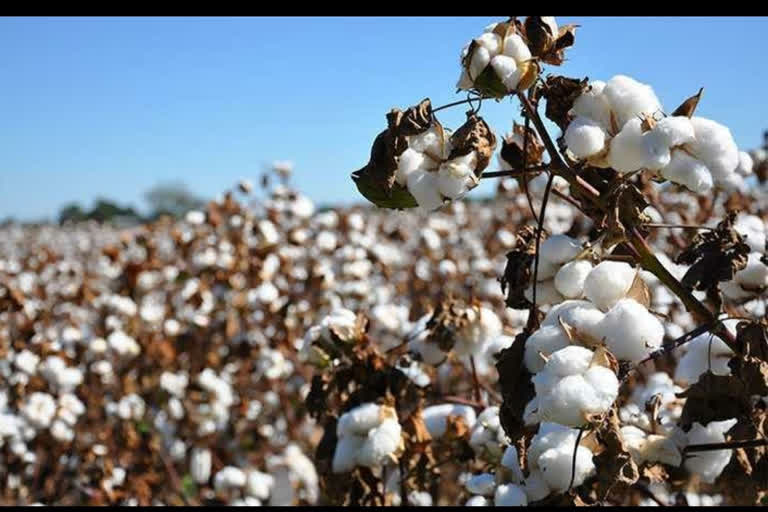Chandigarh:COVID-19 spread has resulted in the migration of labourers to their native places and resulting in mild scarcity of manpower before paddy sowing in Punjab.
To handle the situation and preserve water resources Punjab government introduced the Crop Diversification Programme. It is initiated by the Punjab Agriculture Department and has received good response from farmers with the state nearly accomplishing its goal to bring an area of 12.5 lakh acres under cotton cultivation, which was 9.7 lakh acres last year. Diversification of the cropping pattern away from paddy helps to save the precious natural resources of the state i.e. water, helps improve soil fertility, avoid winter stubble burning and thus preserve and improve the environment in a very substantial way. Punjab had recorded sowing of cotton over an area of 10 lakh acres so far.
As per information, Agriculture Department has arrangement of fertilizer and hybrid seeds of BT Cotton well in advance to ensure seamless sowing of the cotton crop across the state amid curfew/ lockdown due to COVID-19. Cotton was the second major traditional crop of Southern Punjab due to which the Malwa belt of Punjabi state was known as its ‘Cotton Belt’.
The Additional Chief Secretary Vishawjit Khanna said in the districts of Malwa belt cotton sowing had already crossed the mark of 10 lakh acres. He said that the last year target of 9.80 lakh acres (3.92 lakh hectares) was enhanced to 12.5 lakh acres (5 lakh hectares) this year, which is expected to be completed in the first week of June. He also informed that the sowing had been over by the last week of May during previous seasons but would be completed a bit later this year as wheat harvesting started only on May 15 this year with a delay of two weeks amid COVID-19 restrictions.
Giving details of cotton sowing in the districts, Khanna said that so far Bathinda district had recorded maximum sowing of 3.39 lakh acres followed by Fazilka with 2.38 lakh acres and 2.10 lakh acres in Mansa. He said that in Sri Muktsar Sahib 2.02 lakh acres area was under cotton cultivation till date while Sangrur recorded 7800 acres, Faridkot 5800 acres, Barnala 1870 acres and 1257 acres in Moga district.
